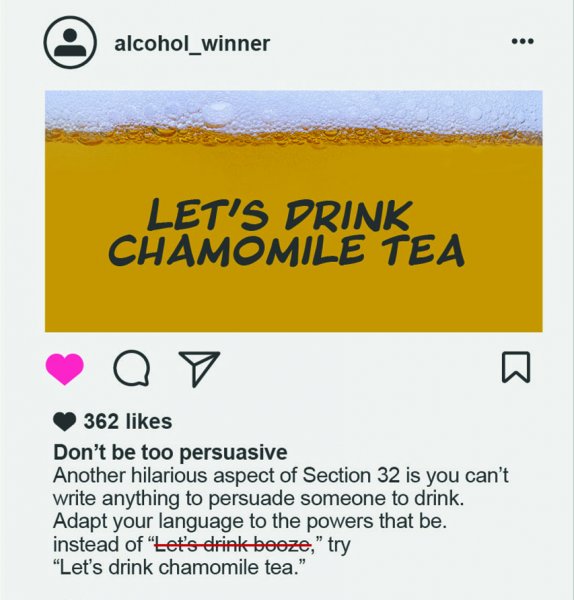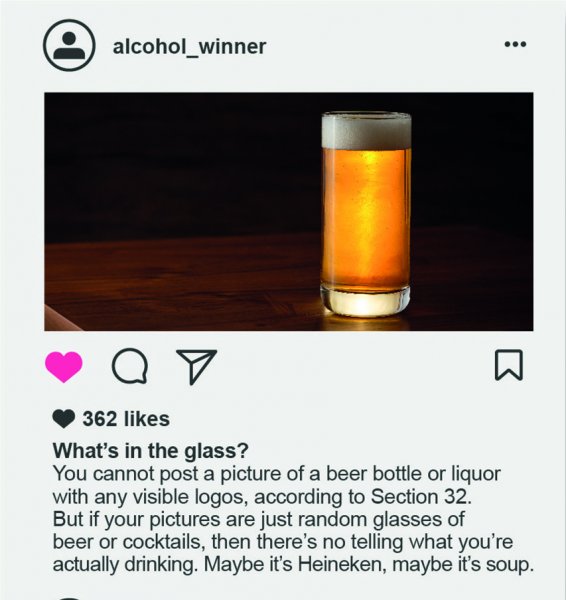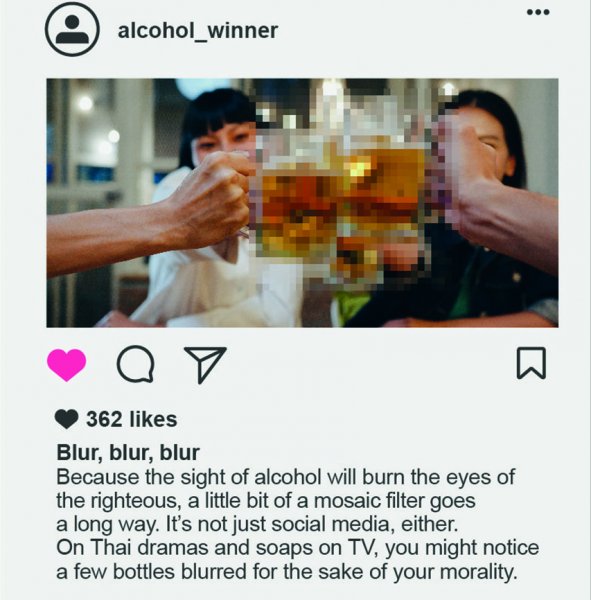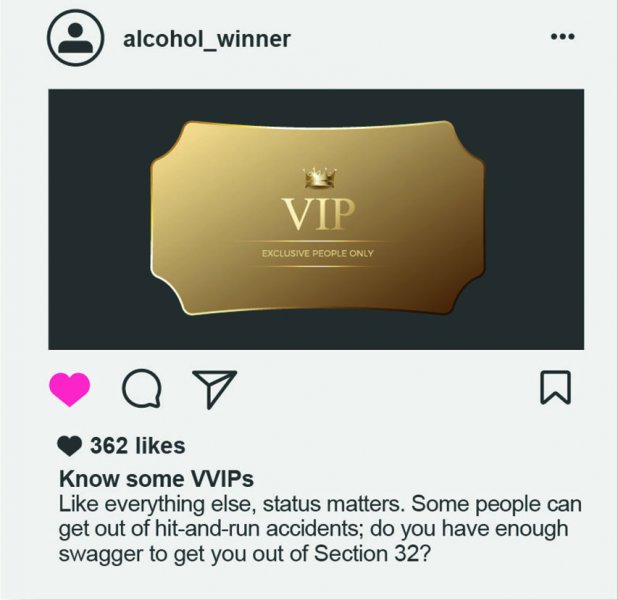Brewers are hamstrung. Entrepreneurs wrestle Escherian regulations. Even consumers face fines for social media posts. There are intransigent monopolies, Carrie Nation-like prohibitionists such as Alcohol Watch Network, and a right-wing government keen to blame booze for their own failures. But BK Magazine has your back, boozehounds.
Section 32

What?
This is Thailand’s weirdest alcohol regulation. Under Section 32 of the Alcohol Beverage Control Act, alcohol bottles, logos, or marketing communication of any kind is banned. In fact, you can’t even say that you enjoy an alcoholic beverage or describe its taste positively. This year has already boasted some startling examples of overreach. In January, a craft beer fan was charged under the act for simply posting about beer on social media, facing a B100,000 fine.
“How do we promote it?...It’s tough,” Canadian Mike Roberts tells BK Magazine after releasing his Outlaw Brewing beer in Bangkok 7-Elevens. “We have a situation now where we have a new product in a thousand new stores. How do we let consumers know? We can’t. They might want that product but how do we let them know?”
What’s worse is that enforcement of the law is arbitrary in the extreme and has ramped up over the last few years.
SURVIVAL:
Have you tried being a gigantic monopoly? Thailand’s many booze laws come from the hardworking oligarchs behind Thai Beverage and Boon Rawd Brewery who produce Chang, Singha, and Leo. But there’s Chang, Leo, and Singha beer merchandise everywhere, right? Wrong. That’s their brand, silly—you know, Chang, the bottled water company. A hat with a Leo logo is fine; a hat with a Guinness logo can get you fined. So, the best way to beat this law is to have been born into the Sirivadhanabhakdi family—or be Lisa from Blackpink, who is Chivas Regal’s new brand ambassador.
Trouble Brewing

WHAT?
Thailand’s craft beer scene is booming. From Brewave to Outlaw, the Kingdom is pulling out new and exciting brews for discerning consumers—all despite draconian brewing laws. Earlier this month Pasakorn “Thep” Sangraksakiat of PrumPlum in Sathorn was charged B10,000 for making a few jugs of plum wine for personal use.
“Section 152 makes it clear that [the law] forbids anyone from having any illegally produced alcohol in their possession. This, however, doesn’t apply when you put other ingredients into the alcohol itself. If making your own plum juice is punishable, what would you say about pouring a mixer into your drinks then?” a lawyer wishing to remain anonymous tells BK Magazine regarding the plum wine debacle.
Current laws state brewers must have capital of B10 million and brewpubs need to produce at least 100,000 liters per year and can not distribute off the premises. Small brewers can’t use a machine greater than five horsepower, and factories must produce a minimum of 10 million liters a year. There's more—much, much more.
SURVIVAL:
A bill by Taopiphop Limjittrakorn (himself a victim of the booze laws) to reform both the brewing laws and the excise taxes has been submitted, stalled, and somewhat shot down. The bill isn’t dead yet, but hope is fleeting. There are, however, still ways to beat the system. Three cousins and outlaw brewers created Brewave on Kanchanapisek Road west of the city, skirting the law by having the capacity to brew 100,000 liters—even though they only sell a couple hundred bottles a week.
“There is this one guy driving all the way from Ayutthaya because he saw our Facebook listing beers he’d never tried before,” Nathachai “Heng” Techavichien, one of the brewers, told BK Magazine partner Coconuts Bangkok.
Daywalkers
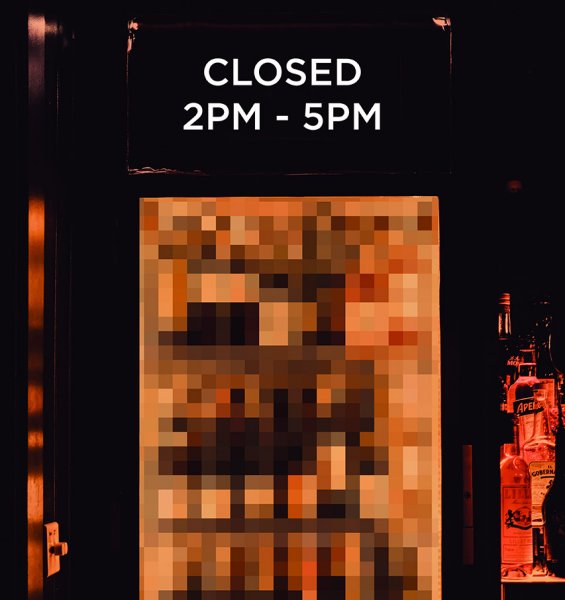
WHAT?
We’ve all been there. It’s midday and you need to prep for a party. Maybe you’re celebrating, maybe doing the big shop, maybe just happy. But it’s between the hours of 2pm and 5pm. This law originates 50 years ago in 1972 when the coup makers created an alcohol control law prohibiting sale times. The law was dusted off in 2015 as a new/old group of power mad goons had recently taken power. Punishment for breaking the law is B10,000.
SURVIVAL:
Annoying but probably the easiest to circumvent. In reality only large supermarkets and convenience stores abide by this rule. If you have a small shop nearby, you can easily grab a bottle of Sangsom; though, you’re pretty limited to low quality brands. On the bright side, there is a (little) movement to end these laws from the Thai Alcohol Beverage Business Association.
Drunk.com
WHAT?
In 2020, Thailand was suffering. We couldn’t drink in bars. We couldn’t go to restaurants. So, the authorities thought to take away our last shred of hope: online booze. On December 7, 2020, ordering beer to your home became illegal, ending the hopes of entrepreneurs and small scale startups around the country. The reasons given were largely in aid of stopping underaged drinking and domestic abuse.
SURVIVAL:
In truth, the law changed little and is rarely enforced. After a few months of initial problems, online booze sales went back to normal.
Cops only look at Facebook, not Twitter or Instagram,” a marketing representative for a local online beer delivery service tells BK Magazine. “They know where our warehouse is. They know what we do. But then they just show up with a print out of our Facebook page and [threaten].”
The trick was for local distributors to remarket as wholesale private member clubs; some even charge subscription fees. But this practice has somewhat subsided. For now, the online booze sales law enjoys lax enforcement, but that can change at any time.
Forever Covid
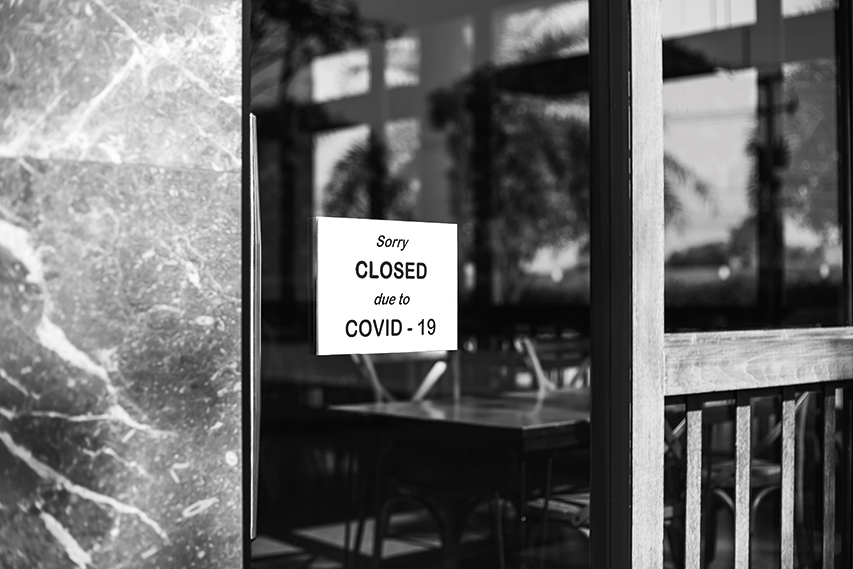
WHAT?
Bangkok locals remember with terror the days of April 2020, when Thailand decided to ban all sales of alcohol for 10 days due to the Covid-19 pandemic, resulting in panic shopping for vodka and beer. Back then, Thailand had less than a hundred cases a day. Now, with thousands of reported cases a day, alcohol remains one of the scapegoats.
“It feels like we’re children in an unnecessarily strict and spiteful school where the rules are both unclear and difficult to follow,” one Thonglor bar owner tells BK Magazine. “Covid laws have significantly affected our business—revenues since the beginning of the Delta lockdown average out to be around three times lower than previous.”
Thailand will have spent around two and a half years laboring under alcohol restrictions imposed due to the Covid-19 pandemic. Bars were shut. Curfews imposed. And even now pubs need to reopen under the auspices of being a restaurant just to serve customers until 11pm, midnight May 1.
SURVIVAL:
Get vaccinated. Get boosted. Grind your teeth.
Excise the Spirits
WHAT?
The excise laws contain many of the more prohibitive aspects of brewing beer and spirits in Thailand, and they also favor the domestic monopolies. Excise tax laws on spirits, beer, and other alcoholic products can be prohibitively expensive.
“Our industry involves thousands of jobs around the world,” an international alcohol distributor representative in Bangkok tells BK Magazine, bemoaning the excessive import restrictions. “Import tax [can be] in excess of 400% on wine.”
SURVIVAL:
Local producers become international producers just to avoid Thailand’s own prohibitive domestic rules. ASEAN countries receive preferential import policies, and some brewers choose to go next door to Cambodia or Vietnam and then ship into Thailand. Mike Roberts, who opened Outlaw Brewing in Loei in northern Thailand, produced his first legal beer in Cambodia in 2018 after brewing in Thailand, a cheaper option to have it shipped to Thailand than to brew it here.
“It always baffles me how clueless our government can be. Instead of pushing Thai local farmers forward, [the government] chose to suspend everything. They can’t see the huge opportunities they wasted from maintaining such laws. Everyone in this country should have the right to enjoy their drinks and express their thoughts freely,” a brewer in Bangkok wishing to remain anonymous tells BK Magazine.
4 ways to post a picture of your drink without getting caught
Thailand’s alcohol laws are no joke. The slightest mistake can end with a B100,000 fine for violating Section 32 or even jail time. As Thailand’s nightlife scene marches backward into prohibition, there are a few things Instagramming drinkers can do to protect themselves.




